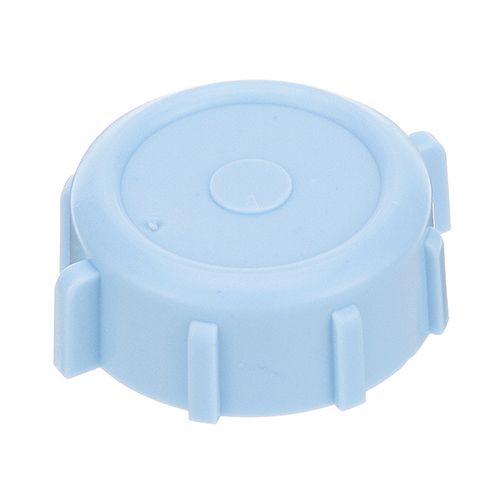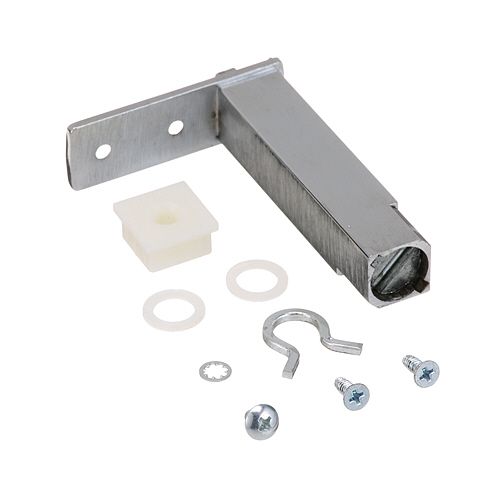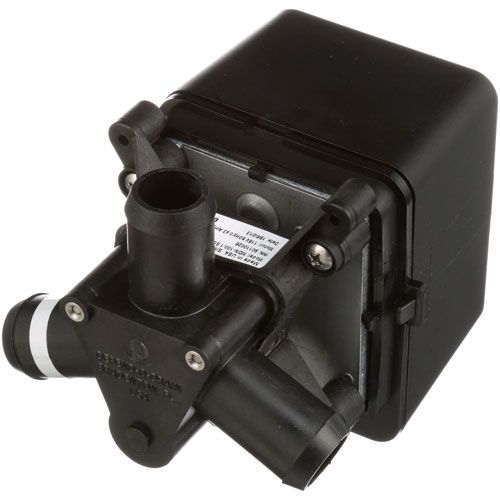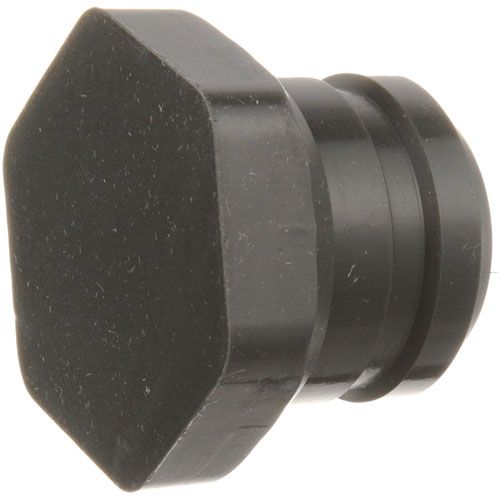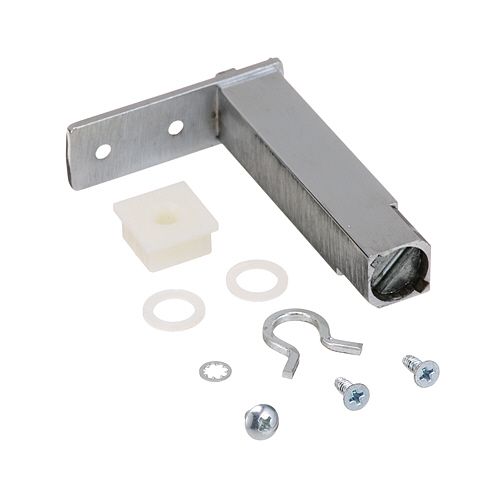The Complete Buyer Guide to Commercial Dishwashers for Restaurant
Running a restaurant entails a variety of tasks, one of the most important of which is ensuring that dishes are properly cleaned and sterilized. A commercial dishwasher is essential in this regard, as it provides streamlined dishwashing procedures, higher cleanliness standards, and substantial time and cost savings.
However, navigating the many commercial dishwasher alternatives available might be difficult. This is where our dishwasher purchasing guide comes in. It provides a comprehensive overview, covering everything from choosing the best dishwasher for your restaurant's requirements to evaluating installation expenses.
How does a dishwasher work in commercial restaurants?
A dishwasher is an important piece of equipment in a business restaurant since it cleans enormous amounts of dishes, glassware, and utensils effectively. Commercial dishwashers, unlike household dishwashers, are designed to resist extensive use and have powerful cleaning capabilities.
A restaurant dishwasher works in stages:
|
Stage |
Description |
|
Pre-rinse |
Large food scraps are manually removed from dishes or with pre-rinse sprayers. |
|
Loading |
Dishes are carefully arranged and loaded into racks to ensure proper spacing for thorough cleaning. |
|
Wash cycle |
The dishwasher door is closed, triggering the wash cycle. Water mixed with detergent is heated and sprayed over the dishes to remove grease, food particles, and residues. |
|
Rinse cycle |
After washing, a rinse cycle initiates to remove detergent and residual particles, while also sanitizing the dishes with hot water or chemicals. |
|
Drying |
Some dishwashers have a drying phase, where heated air circulates to evaporate remaining moisture from the dishes. |
|
Drainage |
Once the cycle is complete, used water is drained from the dishwasher, and dishes are left to air dry or removed for storage. |
What are the types and components of commercial dishwashers used in restaurants?
Types of commercial dishwashers
-
Undercounter dishwashers: Compact units designed to fit beneath countertops for smaller-scale dishwashing needs in restaurants with limited space.
-
Door-type dishwashers: Ideal for higher-volume washing, these dishwashers feature a door that slides down, allowing for efficient loading and unloading of dishes in commercial settings.
-
Conveyor dishwashers: Suited for high-capacity dishwashing, conveyor dishwashers utilize a conveyor belt system to continuously move dishes through various washing stages.
-
Flight-type dishwashers: Designed for large-scale dishwashing operations, flight-type dishwashers are equipped with a conveyor system that transports racks of dishes through the washing process at a rapid pace.
Components of a commercial dishwasher:
|
Component |
Description |
|
Scrap baskets |
- Used to remove food debris before the washing process, preventing clogging of the dishwasher's interior components. |
|
Spray arms |
- Disperse water and detergent to effectively clean dishes during the wash cycle. |
|
Wash tanks and rinse tanks |
- Wash tanks contain detergent and water for the cleaning process, while rinse tanks hold clean water to rinse off detergent residue. |
|
Temperature gauges and thermometers |
- Essential for monitoring water temperature to ensure proper sanitation and cleaning effectiveness. |
|
Chemical injection systems |
- Automatically rinse and dispenser aids at precise intervals during the wash and rinse cycles. |
|
Drain water valves |
- Used to drain water from the dishwasher after each cycle. |
|
Control panel |
- Allows operators to set wash cycle parameters, monitor water temperatures, and diagnose any operational issues. |
The top commercial dishwasher manufacturers in 2024
-
Hobart: Renowned for reliability and efficiency, Hobart offers a wide range of commercial dishwashers known for their exceptional performance and durability.
-
Miele: Known for precision engineering and high-quality standards, Miele commercial dishwashers are prized for their advanced features and longevity.
-
CMA dishmachines: CMA Dishmachines is recognized for its innovative and efficient commercial dishwashers that excel in the restaurant and hospitality industry.
-
Jackson warewashing systems: Jackson offers a diverse lineup of high-performance commercial dishwashers designed to meet the demanding requirements of commercial kitchens.
-
Meiko: Meiko is a leading manufacturer of commercial dishwashers known for their state-of-the-art technology, sustainability, and exceptional washing results.
How to select the proper commercial dishwasher for your restaurant?
Selecting the right commercial dishwasher for your restaurant involves several crucial considerations to ensure optimal efficiency and productivity in your kitchen operations.
|
Consideration |
Description |
Examples |
| Assess your restaurant's needs |
- Evaluate establishment size and customer traffic - Determine types of dishes handled regularly |
- Size of restaurant - Customer traffic volume - Types of dishes served |
| Types of commercial dishwashers |
- Undercounter, door-type, conveyor, flight-type - Understand features, space requirements, and capacities |
- Undercounter dishwasher - Door-type dishwasher - Conveyor dishwasher - Flight-type dishwasher |
| Capacity and speed |
- Consider peak load volume - Ensure fast cycle times for productivity enhancement |
- Peak load volume - Cycle times |
| Water and energy efficiency |
- Prioritize high efficiency with Energy Star certification - Look for features like variable wash cycles and heat recovery systems for reduced utility costs |
- Energy Star certification - Variable wash cycles - Heat recovery systems |
| Cleaning performance and wash cycle options |
- Choose user-friendly controls and intuitive interfaces - Prefer models with self-cleaning functionality for simplified operation and maintenance |
- User-friendly controls - Self-cleaning functionality |
| Ease of use and maintenance |
- Choose user-friendly controls and intuitive interfaces - Prefer models with self-cleaning functionality for simplified operation and maintenance
|
- User-friendly controls - Self-cleaning functionality
|
| Reliability and durability |
- Research brand reputation for reliability in commercial settings - Seek recommendations from industry professionals for assurance of longevity |
- Brand reputation - Recommendations from industry professionals |
| Budget considerations |
- Set a budget-balancing cost with quality, performance, and durability - Consider long-term efficiency benefits and reduced maintenance expenses |
- Budget allocation - Long-term efficiency benefits |
How to install an industrial dishwasher?
Installing a commercial dishwasher requires attention to detail and adherence to specific steps to ensure proper functionality.
Preparation and safety
-
Turn off utilities: Before installation, ensure the power supply, water, and drainage systems are switched off for safety.
-
Space planning: Select an appropriate location for the dishwasher, allowing space for loading and unloading, as well as access for maintenance and repairs if needed.
Installation steps
-
Utility connections: Connect the dishwasher to the appropriate electrical supply, ensuring compliance with voltage and wiring specifications outlined in the manufacturer's manual.
-
Water supply: Connect the dishwasher to a dedicated hot water line, incorporating a shut-off valve for maintenance and emergencies.
-
Drainage system: Install a suitable drainage connection for the dishwasher, ensuring proper slope to facilitate water drainage and prevent backups.
-
Leveling: Use a spirit level to ensure the dishwasher is leveled properly, as this is critical for its stability and operational efficiency.
-
Secure the dishwasher: Fasten the dishwasher to the floor using appropriate fastening devices to prevent any movement during its operation.
-
Testing: Once installed, test the dishwasher by running a cycle to verify that all connections are secure and the dishwasher operates as expected.
-
Commissioning: Follow the manufacturer's guidelines for any specific commissioning steps, ensuring that the dishwasher is calibrated and programmed according to the operational requirements.
How much does installing a dishwasher cost?
The cost of installing a dishwasher can fluctuate based on multiple factors, including the intricacy of the installation, required plumbing or electrical adjustments, and regional differences.
|
Installation component |
Typical cost range |
|
Basic installation |
$100 - $200 |
|
Plumbing modifications |
$200 - $500 |
|
New electrical circuit |
$200 - $500 |
|
Plumber or electrician fees |
$50 - $100 per hour |
How to clean a commercial dishwasher?
Cleaning a commercial dishwasher is crucial to maintaining its efficiency and ensuring the hygienic washing of dishes in a restaurant or food service establishment. Start by pre-rinsing the interior by removing any food debris or deposits. Next, use a commercial dishwasher cleaner or a mixture of water and vinegar to clean the interior surfaces, including the racks, wash arms, and filters. Scrub stubborn stains or buildup with a brush or scrubbing pad. Run a cleaning cycle with the appropriate cleaning solution to sanitize the dishwasher thoroughly. Wipe down the exterior with a damp cloth and ensure the drainage system is clear of any blockages. Regular maintenance, such as descaling mineral deposits and cleaning filters, is essential to prevent clogs and maintain optimal performance. By following a routine cleaning schedule and using appropriate cleaning agents, a commercial dishwasher can operate efficiently and uphold the highest standards of cleanliness in a professional kitchen environment.
Explore PartsFe.Ca, your one-stop shop for commercial dishwasher parts from top brands, with low prices and exceptional customer service. Whether you require replacements or upgrades, we have you covered.
Common mistakes to avoid when buying a commercial dishwasher
Investing in a commercial dishwasher is a big decision, and avoiding common mistakes can save you money, time, and headaches. Here are the top pitfalls to watch out for:
Underestimating capacity needs
Choosing a dishwasher that’s too small for your restaurant’s volume can quickly lead to backups in the kitchen, slow service, and equipment strain. Always size your dishwasher based on your peak business hours, not your average.
Ignoring local health regulations
Health codes vary by city and state. A dishwasher that isn’t certified or doesn't meet required sanitation temperatures could put you at risk of failing inspections. Always verify compliance with your local health department before buying.
Overlooking installation requirements
Many commercial dishwashers require specific electrical connections, water pressure, and drainage systems. Failing to prepare your space can result in unexpected costs or delays. Always review the technical specs before purchasing.
Skipping warranty and service plans
A solid warranty and access to service technicians can make all the difference if something goes wrong. Don’t skip extended coverage or support options—it’s a smart investment in your equipment’s lifespan.
Choosing based on price alone
Going for the cheapest option might seem like a win, but lower-cost units often have higher long-term operating costs or reliability issues. Focus on performance, efficiency, and support over price alone.
Final checklist before buying a commercial dishwasher
Use this checklist to stay on track with your purchase:
-
Measure kitchen space and access paths
-
Confirm electrical, plumbing, and ventilation compatibility
-
Calculate your peak dishwashing volume
-
Compare energy and water efficiency rating
-
Choose between high-temp or low-temp models
-
Read customer reviews and request product demos
-
Check for warranty, service, and parts availability
Conclusion: investing in the right commercial dishwasher
The right commercial dishwasher is more than a piece of equipment—it’s a business asset that saves time, improves hygiene, and keeps your kitchen running smoothly. By considering your specific needs, evaluating types, comparing features, and avoiding common mistakes, you can make a confident, informed purchase.
Whether you're outfitting a cozy café or a busy banquet hall, the right commercial dishwasher ensures your team can focus on what they do best: serving incredible food and creating memorable dining experiences.
FAQs
How can I choose the right size and capacity of commercial dishwashers for my restaurant's needs?
Consider the daily volume of dishes, the types of dishes being washed, space limits, and peak operational hours when deciding on the optimum size and capacity of a commercial dishwasher for your restaurant.
Are there any specific sanitary requirements or regulations that commercial dishwashers must follow?
Commercial dishwashers must follow strict sanitation standards and regulations established by health agencies such as NSF International and the Food and Drug Administration (FDA) to ensure effective dish cleaning and sanitization.
What are the temperature requirements for commercial dishwashers?
The temperature requirements for commercial dishwashers typically include a wash water temperature of around 150°F (65.5°C) and a rinse water temperature of at least 180°F (82.2°C) to ensure effective cleaning and sanitization of dishes.


